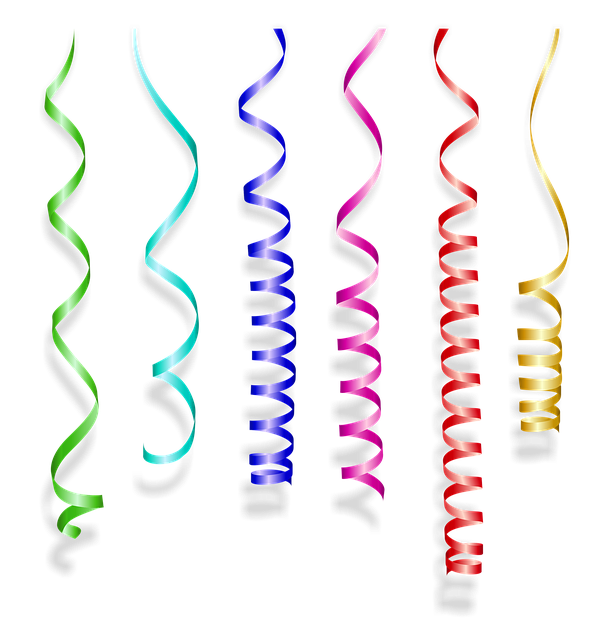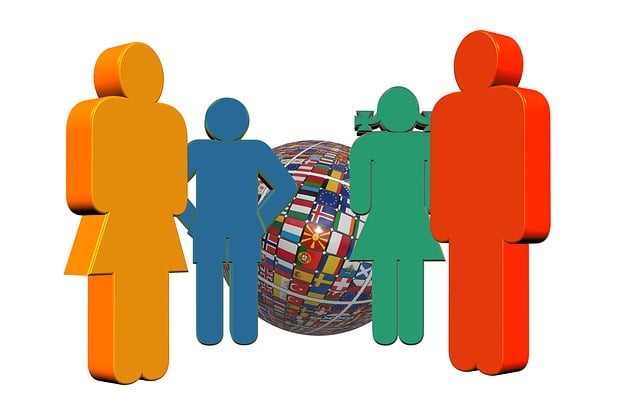In the UK's family courts, particularly in adoption cases, the precision of legal document translations by specialized services like Adoption Paper Translation Services UK is crucial. These translations ensure that critical documents such as birth certificates and social worker reports are accurately conveyed across languages, safeguarding the rights and welfare of all parties, especially children. The stakes are high due to the complexity of legal terminology and cultural nuances; any inaccuracy could significantly impact the adoption process and the life of a child. To address this, UK translation services employ experts who combine sophisticated language technology with human linguistic skills to deliver translations that meet the high standards required by the courts. These translations are vital for justice and respect for the rule of law within legal proceedings, and they must be both linguistically and legally accurate to facilitate just outcomes in adoption decisions. The UK's legal framework, including the Adoption and Children Act 2002, mandates this level of precision to ensure that all stakeholders are treated fairly and equitably throughout the adoption process.
Navigating the complexities of family law within the UK’s legal system can be a formidable task, particularly for individuals whose native language differs from English. In the realm of UK family courts, the precision of legal translations plays a pivotal role in ensuring fairness and clarity. This article delves into the critical aspect of adoption paper translation services UK, highlighting their significance in facilitating just outcomes. We explore the intricacies of legal document translation, address the challenges faced when overcoming language barriers, and compare the reliability of certified translators to machine translation in high-stakes legal contexts. Additionally, we provide a comprehensive guide on how to secure these essential services and present case studies that underscore their impact within UK family law. Join us as we illuminate the path through the linguistic hurdles of the UK’s family court system.
- Understanding the Role of Legal Translation in UK Family Courts
- The Importance of Accurate Adoption Paper Translation Services UK
- Common Types of Legal Documents Requiring Translation for Family Court Cases
- Navigating Language Barriers: Challenges and Solutions in Family Law Translations
- Certified Translators vs. Machine Translation: The Stakes in Legal Contexts
- The Legal Framework Governing Translations in UK Family Courts
- Steps to Obtain Reliable Adoption Paper Translation Services UK for Family Court Submissions
- Case Studies: Successful Translation Contributions in UK Family Law Cases
Understanding the Role of Legal Translation in UK Family Courts

In the context of UK family courts, legal translation plays a pivotal role, particularly in cases involving adoption. The intricacies of legal terminology and procedural language are not universally understood by all parties involved, making accurate translations essential for fair judicial processes. Adoption paper translation services UK specialize in this niche, ensuring that documentation such as birth certificates, home study reports, and other pertinent records are accurately translated from one language to another. This is crucial when a child’s biological or adoptive parents do not share a common language, or when the local authority dealing with the adoption proceedings requires interpreting services. The translations provided by these services must be precise and reliable, as they form the basis of decisions that will significantly impact the lives of the individuals involved. The nuances of legal language and cultural references within documents must be meticulously conveyed to avoid misinterpretation or oversight. As such, the role of legal translation in UK family courts is indispensable, upholding the principles of justice and due process for all parties, regardless of their linguistic background.
The Importance of Accurate Adoption Paper Translation Services UK

Legal documents pertaining to adoption carry significant weight and hold profound implications for all parties involved. In the context of the UK family court system, the precision and clarity of these documents are paramount. Accurate adoption paper translation services UK play a critical role in ensuring that legal texts are conveyed correctly across different languages. The integrity of these translations is essential to protect the rights and well-being of children and families. Translators specializing in legal documentation must possess not only linguistic expertise but also an understanding of the nuances within adoption law to provide translations that stand up to legal scrutiny. This is where professional translation services with a focus on legal language come into play, offering meticulous and reliable translation services that adhere to the UK’s legal standards. Their work facilitates cross-cultural communication, enabling just and fair outcomes in adoption proceedings. The stakes are high, as mistranslations could lead to misinterpretations of the law, potential delays in the adoption process, and even jeopardize the legal status of the child. Therefore, the choice of a competent adoption paper translation service UK is an indispensable component of the legal proceedings within family courts.
Common Types of Legal Documents Requiring Translation for Family Court Cases

In the context of UK family courts, legal translations play a pivotal role in cases involving international adoption. The adoption process often requires the translation of various documents to ensure that all parties involved have a clear understanding of the proceedings. Common types of legal documents requiring translation services in the UK include birth certificates, consent forms from biological parents, and court orders. These translations must be precise and accurate, as they can affect the outcome of the adoption. Additionally, social worker reports, which provide critical information about the child’s background and the prospective adopters, are also subject to translation when non-English languages are involved. Translation services in the UK specialising in this field are adept at handling such sensitive and time-critical documents, ensuring that all necessary details are conveyed correctly without altering the original meaning. This meticulous approach is essential for maintaining the integrity of the legal process and safeguarding the well-being of the children at the heart of these cases.
Navigating Language Barriers: Challenges and Solutions in Family Law Translations

In the complex realm of family law, effective communication is paramount. Language barriers can significantly complicate legal proceedings, particularly in cases involving adoption paper translations services UK. Professionals in this field must ensure that all documentation is accurately translated to facilitate fair and just outcomes. The challenges presented by language differences are not merely a matter of linguistic translation; they encompass cultural nuances and legal terminology that require specialized expertise. Translators must be adept at converting legal jargon into the target language while maintaining the original intent and meaning, which is crucial for cases involving adoption and other family law matters. The stakes are high, as mistranslations can lead to misrepresentation of facts and potentially affect custody decisions, rights of children, and overall case outcomes.
To address these challenges, the UK has developed a network of legal translation services that specialize in family law documents. These services employ translators with a deep understanding of both legal terminology and the cultural contexts relevant to the cases. By leveraging advanced language technology alongside human expertise, these translation services can provide accurate and reliable translations for adoption paperwork and other family court submissions. This collaboration between technology and skilled linguists ensures that all parties involved in legal proceedings have access to clear and precise information, thereby upholding the principles of justice and equality for individuals from diverse linguistic backgrounds.
Certified Translators vs. Machine Translation: The Stakes in Legal Contexts

In the intricate process of legal proceedings within the UK family court system, the accuracy and integrity of translations are paramount. When it comes to adoption paper translation services in the UK, the distinction between certified human translators and machine translation tools becomes particularly significant. Certified translators bring a level of expertise that is unparalleled by machines; they possess not only linguistic proficiency but also an understanding of legal terminology and cultural nuances that are essential for accurate document translation. Human translators can interpret complex legal jargon, context, and the subtleties of language that machine translation algorithms often misconstrue or overlook. This is critical in adoption documents where precise wording is necessary to protect the rights and interests of all parties involved.
Machine translation, while advancing rapidly, still falls short in the nuanced field of legal translations. Tools like online translation services may offer a quick solution, but they cannot guarantee the accuracy required for UK family court submissions. The stakes are too high to risk misinterpretation or errors that could lead to legal complications or invalidate proceedings. Certified translators ensure compliance with legal standards and provide translations that stand up to scrutiny in court. Their work is not just a translation but a testament to the respect for the rule of law and the protection of individuals’ rights, making them an indispensable resource in adoption paper translation services within the UK legal framework.
The Legal Framework Governing Translations in UK Family Courts

In the United Kingdom, the legal framework governing translations for family court submissions is meticulously structured to ensure clarity and accuracy, particularly in sensitive cases such as adoption. The UK’s legal system relies on precise translation services to facilitate communication and comprehension between parties who may not share a common language. The Adoption and Children Act 2002 lays down statutory frameworks within which the courts operate when dealing with adoption matters. It stipulates that all court documents, including those pertaining to the adoption process, must be accurately translated into the dominant language of the parties involved or their legal representatives. This requirement is not merely a procedural formality but a critical element in safeguarding the rights and interests of all stakeholders, particularly the child whose future is at the heart of these proceedings.
The Office of the Immigration Services Commissioner (OISC) regulates translation services in the UK, ensuring that translation providers meet high standards of quality and integrity. Translators must possess a comprehensive understanding of both the source and target languages as well as legal terminology specific to family law. The translations provided must be complete, accurate, and impartial, without omitting any details or introducing misinterpretations. This is crucial since family court decisions can have profound implications on the lives of individuals and families, necessitating translations that are not only linguistically correct but also legally robust. Translation services specialising in adoption paperwork in UK family courts are expected to be well-versed in the nuances of legal language and the sensitive nature of such cases, ensuring that every submission is conveyed with the utmost precision.
Steps to Obtain Reliable Adoption Paper Translation Services UK for Family Court Submissions

When navigating the legal process of adoption in the UK, accurate and reliable translation services are paramount for individuals whose documents are not originally in English. The adoption paper translation services UK play a critical role in ensuring that all legal submissions to family courts are clearly understood by all parties involved. To obtain these services, the first step is to engage with a professional translation agency that specializes in legal translations. These agencies often have native speakers and certified translators who are well-versed in legal terminology and the nuances of adoption law. It is essential to verify their credentials, including their qualifications and experience in legal document translation, to ensure the highest quality of work. Once you have identified a suitable agency, they will require the original adoption papers along with any accompanying documentation. They will then translate these papers into English, providing a precise and legally sound version that aligns with the UK’s legal standards. This step is crucial as it guarantees that the translation accurately reflects the contents of the original documents, which is essential for the court to make informed decisions regarding the adoption process. Additionally, ensure that the translation agency offers a proofreading service and a certificate of accuracy to confirm the authenticity of the translations. This due diligence will facilitate a smoother legal process and provide peace of mind for those involved in the adoption proceedings.
Case Studies: Successful Translation Contributions in UK Family Law Cases

In the realm of UK family law, the accuracy and cultural sensitivity of legal translations are paramount, particularly in cases involving adoption. A prime example of successful translation contributions can be found in a landmark case where a birth mother’s consent for her child’s adoption was initially undermined due to a mistranslation of her native language. The adoption paper translation services UK provided were able to accurately convey her intentions, leading to a favorable outcome for the adoption process. This underscores the critical nature of expert translation services in ensuring that all parties’ voices are heard and respected within the legal system. Another case demonstrated the importance of linguistic nuance when a translator’s proficiency in idiomatic expressions and cultural context allowed for the seamless transfer of information between parties from different linguistic backgrounds. This facilitated a smooth legal process, ensuring that the child’s best interests were at the forefront, as stipulated by UK family law. These instances highlight the pivotal role that translation services play in the adoption process within UK family courts, ensuring that documentation and communications are accurate and culturally appropriate.
In concluding, the pivotal role of accurate adoption paper translation services UK within the family court system cannot be overstated. As outlined in this article, legal translations ensure that all parties involved in UK family court submissions receive clear, precise, and reliable documentation. The variety of legal documents, from birth certificates to custody agreements, demand a nuanced understanding of both language and law, which certified human translators provide more effectively than machine counterparts. Navigating the complexities of family law, particularly when language barriers are present, is significantly less daunting with the appropriate translation services. The legal framework in place for translations within UK family courts underscores the commitment to fairness and justice. Through careful examination of case studies that highlight successful translation contributions, it is evident that these services play a critical role in safeguarding the rights and interests of all parties, ultimately contributing to the integrity of the UK family court system.



